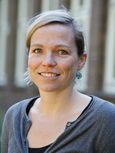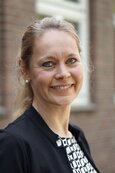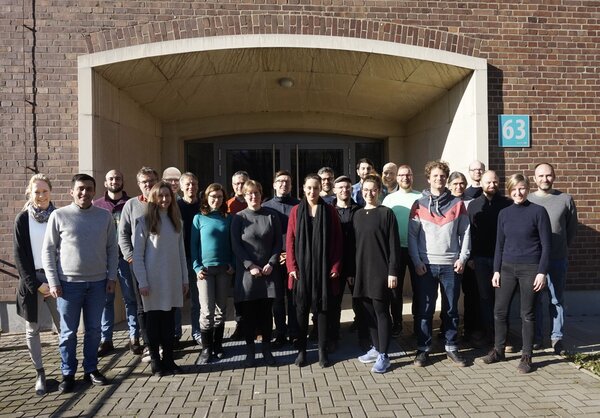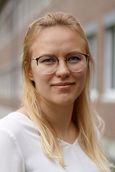The establishment of the working group "Model Network" took place in 1995 in close coordination with the BMEL. Today, about 20 scientists from the Thünen research field Agricultural Economics contribute their expertise in an active exchange for the application, maintenance and further development of the models. They also integrate expertise from other working groups of the economic and natural science Thünen Institutes.
Permanent communication and interactive working methods are important prerequisites for the successful work of the model network.
co-ordinates the Thünen Model Network and acts as first contact person for the BMEL with respect to model based policy impact assessments. He maintains the farm group model FARMIS. Frank strives to strengthen the synergies within the network, and to establish the in dialogue with the BMEL He is particularly interested in further intensifying the co-operation between the Thünen Model Network and German Universities.

- Phone
- +49 531 596 5301
- martin.banse@thuenen.de
Director
is in charge of the general equilibrium model MAGNET and is an expert for the representation of renewable energies, among other things. He uses his numerous contacts to further expand the international networking of the model network in particular.

- Phone
- +49 531 596 5141
- claus.deblitz@thuenen.de
Deputy Director
co-ordinates the agri benchmark Beef and Sheep Network and is mainly responsible for the operational model TIPI-CAL. Global networking and the involvement of practitioners in research are particularly close to his heart.
is responsible for modeling tariff quotas (TRQs) in MAGNET.
is mainly responsible for the general equilibrium model MAGNET. In addition, he represents the Thünen Institute in the MAGNET consortium.
is responsible for modeling dietary changes with the CGE model MAGNET.
is mainly responsible for the European agricultural sector model CAPRI. He represents the Thünen Institute in the CAPRI consortium. Through close cooperation with the EU Commission and its research institutions, he contributes the competencies of the Thünen Model Network to scientific policy advice at the European level.
is responsible for modeling the sugar and isoglucose sector in the Thünen AGMEMOD team. She also works with a spatial price equilibrium model for the global sugar market and has been coordinator of the Thünen Baseline since 2020.

- Phone
- +49 531 596 1111
- claudia.heidecke@thuenen.de
is responsible for the mapping of nutrient balances. She coordinates projects in which hydro-economic model networks are applied with partners outside the Thünen Institute.

- Phone
- Currently not available
- verena.laquai@thuenen.de
is responsible for modeling the cereal and oilseed sector in AGMEMOD. It also deals with the linking of models.

- Phone
- +49 531 596 1101
- bernhard.osterburg@thuenen.de
is an expert on the mapping of environmental aspects in the models and coordinates the cooperation of the Model Network with the Thünen Institute of Climate-Smart Agriculture.

- Phone
- +49 531 596 5319
- janine.pelikan@thuenen.de
Deputy Director
is responsible for the area of international agricultural trade in the general equilibrium model MAGNET. She is an expert in trade agreement modeling and foreign trade protection analysis and represents the Thünen Institute in the GTAP consortium.
is responsible in the Thünen-CAPRI team for modeling and evaluating measures and policies to reduce environmental impacts in agriculture. The focus of his research is the reduction of environmental impacts from nutrients from agricultural sources.

- Phone
- +49 531 596 5215
- norbert.roeder@thuenen.de
Scientist
is an expert in a wide range of statistics in the agricultural sector and coordinates the cooperation of the model network with the Institute for Strategies and Impact Assessments of the Julius Kühn Institute (JKI).
is responsible for evaluating EU agricultural and environmental policy in short and long-term perspectives using the CAPRI model. He is also involved in methodological development and extension of the model along with the CAPRI consortium.
is responsible for modelling of animal product markets with the partial equilibrium model AGMEMOD. She is also engaged in the modelling of the bioeconomy, in particular the modelling of the material use of bioresources with the BioMAT module of the AGMEMOD model. Furthermore, she is dealing with the creation of long-term projections and the linking of models.
is responsible for the area of international agricultural trade in the general equilibrium model (MAGNET). He also works on analyzing policies in food value chains using partial equilibrium models.

- Phone
- +49 531 596 5510
- maximilian.zinnbauer@thuenen.de
Scientist
is mainly concerned with the spatial modeling of nutrient balances and nutrient-relevant policy scenarios. In the course of this, he works closely with experts from the federal and state governments, agriculture and water management, and hydrology.












![[Translate to English:] Logo des Bundesministerium für Ernährung und Landwirtschaft](/media/allgemein/logos/BMEL_Logo.svg)